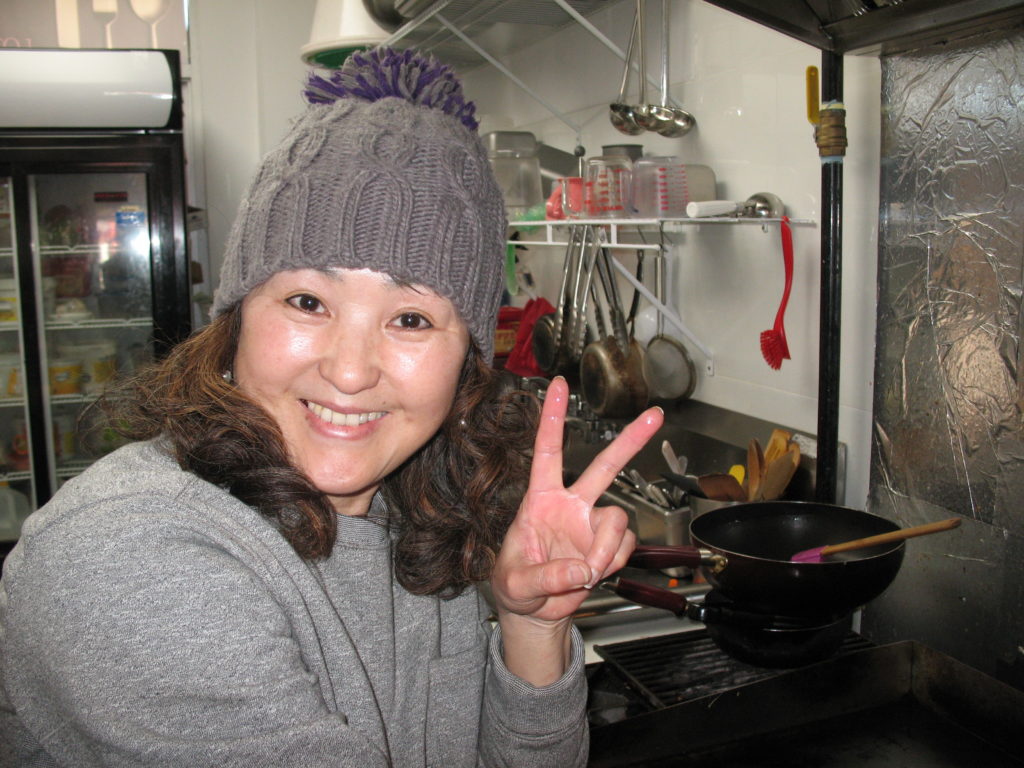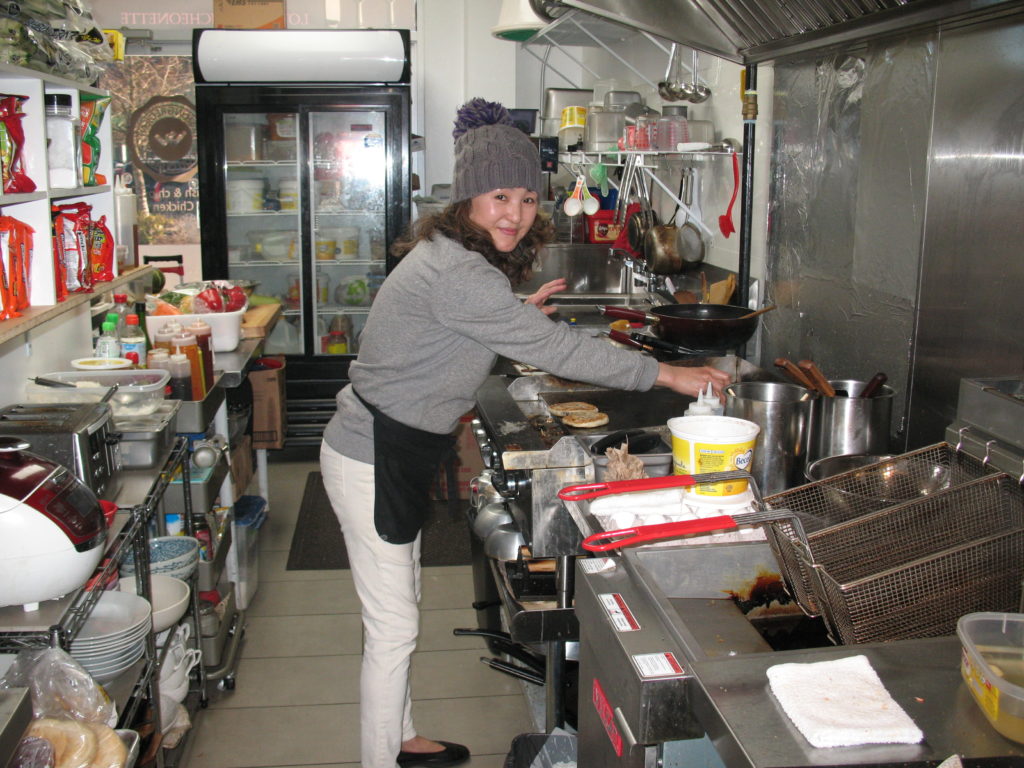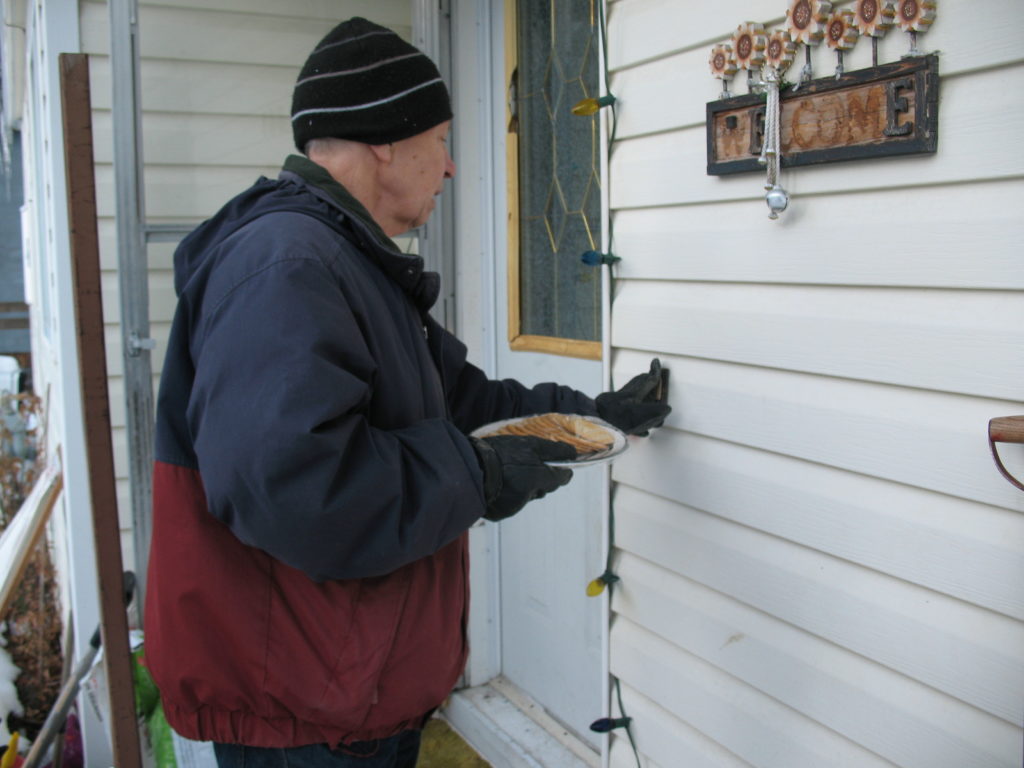
On our return trip to Hedley from Abbotsford last week, Linda and I had breakfast with our son and daughter-in-law in Lotte’s Luncheonette in Chilliwack. It’s a small Korean restaurant with only 5 tables. The congenial atmosphere fosters a sense of contentment and well being. We had been here before, usually on our way home. As always, Lotte welcomed us with a radiant smile and asked about our plans for the day. Once again, the breakfast she served us was delightful. Then, as we were about to leave, she presented Linda and me with a large coffee to go and 2 small specialty pancakes tucked into paper envelopes. A touch of cinnamon made them a delicious treat. “You have a long drive today,” she said, smiling broadly, “This is for your trip home.” Lotte’s gift made us feel quite special.
Lotte’s gesture reminded me of an observation in The Wind in my Hair, an autobiography by Iranian author Masih Alinejad. A friend told her, “People forget what you tell them, but they never forget what you do for them.”
As we negotiated the climbs, descents and curves of the Hope-Princeton later that morning, I realized Lotte’s gift made me feel worthy and lifted my spirits. It stirred in me the thought that over the course of my lifetime, I’ve been the beneficiary of some wonderfully life shaping interactions. Invariably, these encounters have been with individuals I respect for their integrity. It seems they had an innate, possibly unconscious desire to drop a pearl of blessing into my life.
As we passed the Manning Park lodge, my thoughts drifted many years into the past, when I was a late teen in my last year in school. Mr. Wally Klassen, the biology teacher realized I was struggling with his course. One day he asked me to stay behind after the class. “I can see this isn’t a strong area for you,” he said,”but if you put in the effort, I’ll make sure you pass.” A soft spoken man without guile or pretense, he evidently wanted to stand by this young student who had little aptitude for science. Now, many years later, I still deeply appreciate his desire to encourage me. A few years ago, just before Christmas, I called him, reminded him of what he had done, and thanked him. He didn’t remember me but he certainly was pleased to learn he had made a difference in my life. He was one of those all too rare individuals who has a vision for more than himself.
Sometimes a person’s words are a life impacting gift. In his latter years, my Dad was in a wheelchair due to a disabling fall. One day I took him to a classical concert in an Abbotsford church. Sitting several rows ahead of us I recognized Mr. Bill Wiebe, my former school principal. In a school that was then known to be strong in basketball, music and theatre, I had not done anything noteworthy. It was now many years later and I felt certain he would not remember me. After the program I introduced myself. “Yes, yes,” he said with enthusiasm. “I remember you. I read what you write in the local newspaper. Keep it up.” He was a man of immense authenticity, highly respected in the community. In this brief interaction he encouraged me to believe the views I was expressing publicly had value.
When I needed to transport several pieces of furniture from Princeton to Hedley some years ago, Gary Ross, a fellow Hedley resident, volunteered to haul them in his pickup. I accepted his offer gladly and said I would reimburse him for his time and expenses. He adamantly refused any payment. I still value this act of friendship and generosity.
Today, as I reflect on these and other priceless “gifts” that have come to me, I realize they have shaped my thinking and even the course of my life. I don’t consider it a stretch to say they have played a significant part in enabling me to believe I can dare more and do more. They have enriched my life immensely, and now I remind myself I have a responsibility and an opportunity to “pay it forward” and thereby enrich the lives of others.


